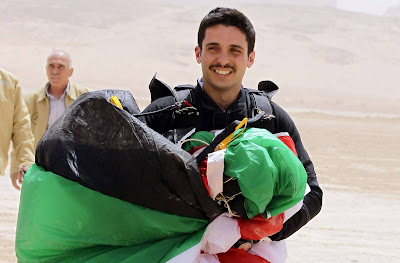Jordanian authorities raided the palace of the kingdom’s former prince on Saturday and arrested two senior aides after uncovering what intelligence officials believe was an attempted coup against the ruling monarch, King Abdullah.
Prince Hamzah bin Hussein, half brother of King Abdullah, the arrests are mainly centered around him.
Prince Hamzah’s Video
Prince Hamzah said during a video he was under confinement and had been told to remain reception and not contact anyone. In the video sent to BBC by his lawyer, he said he didn’t participate in any foreign conspiracy and denied the ruling system to be corrupt.
“(Jordanians’) well being has been put second by a ruling system that has decided that its interests, financial interests, that its corruption is more important than the lives and dignity and future of the 10 million people who live here,” he said.
Response By the Military
Its military leadership renounced reports of Prince Hamzah being arrested. However, intelligence officials claimed that the prominent royal of Jordan has been placed under house arrest.
The police patrolled all entrances to the town and highways to other parts of the country and roads near Prince Hamzah’s place were blocked by military units later on Saturday.
Military chief Yusef Ahmed al-Hunait said during a statement that he had been “asked to prevent movements and activities that were wont to target the safety and stability of Jordan”.
More About the Arrested Aides
According to the state media, Bassem Ibrahim Awadallah and Sharif bin Zaid were arrested. The latter previously served as an envoy from Jordan to Saudi Arabia and is the brother of an intelligent officer assassinated in 2009 by an al-Qaida double agent in Afghanistan. The suicide attack also killed five CIA officers.
Awadallah, meanwhile, had served as head of the royal court and was considered by western officials to possess been particularly on the brink of King Abdullah. A statement by the Government described the given plot as ‘advanced’ and claimed it had regional links.
What Top Officials and the Royal Family Have to Say
Turki al-Sheikh, an adviser to the Saudi royal court, later tweeted a series of photographs of King Abdullah and therefore the Saudi prince, Mohammed bin Salman, with the accompanying remark “No comment, the pictures speak (for themselves)”.
Countries that backed King Abdullah are Egypt, Bahrain, Qatar, Iraq, Lebanon, Kuwait, and Palestine along with Arab League. Arrests of top officials and royalty members are rare in Jordan, seen together of the Arab world’s most stable countries.
Riyadh also released a concise report saying: “We stand by Jordan and support the decisions of King Abdullah II to protect the security of his country.”The US state department said King Abdullah was a “key partner” and had its full backing.
Queen Noor, the widow of King Abdullah and Prince Hamzah’s father, the late Hussein, explained the accusation against Hamzah as “wicked slander” and gave prayers for “truth and justice”.
Abdullah, who ruled the kingdom since King Hussein’s death in 1999, did not face serious organized opposition throughout his two-decade reign.
It has been challenging since the onset of the pandemic, to balance the country’s powerful tribal groups along with dwindling revenues, a combustible parliament, and a series of weak governments. But the State had widely been perceived as a model of stability in an otherwise turbulent region.
Jordan’s Relationship With Saudi Arabia
The relationship has been one point of friction, which backed the State financially, but whose perception towards Amman shifted under Prince Mohammed.
Jordan feared it had grown increasingly marginalized within the region as Bin Salman’s influence over Saudi policy has grown. Amman drew power from its status, as ties between Israel and Saudi Arabia have improved and the Jewish State signed ‘peace deals’ with Saudi people, that role waned.
Bin Salman is additionally thought to be less concerned about pushing for the creation of a viable Palestinian state, increasing the likelihood that Jordan may need to fully regularise its significant Palestinian population or absorb parts of the neighbouring West Bank – both possibilities that are seen as existential threats to the Jordanian monarchy.
Reports of Saudi meddling in Jordanian offers are common, a part of a decades-long struggle for influence between the 2 royal houses. The Hashemites who dictate Jordan also regulated holy sites including Mecca and Medina until they were seized by the House of Saud nearly a century ago.
Amman last year circulated a statement heading off charges of a threat to Abdullah’s custodianship of the Aqsa mosque, the third holiest site in Islam and a key policy of his family’s legitimacy, among talks that Israel might acknowledge Saudi power of the location as a part of a wider diplomatic accord between the two.
Written by - Jibita J. Binnu
Edited by - Nandita Singh










0 Comments